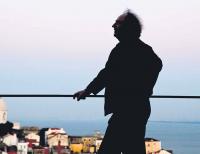african
Articles tagged with african
Tag Archive
- 2020
- 25 april
- activism
- Adolfo Luxúria Canibal
- Alqueva
- América
- angolan music
- António Alonso
- António Ole
- art gallery
- Ayres de Magalhães
- Backlands
- Basileia
- Benedict Anderson
- Biodiversity
- black
- Black body
- black feminism
- Cabo Verde
- carbono
- carnivalesque protest
- city
- colonial unconscious
- communities
- congoísmos
- contemporary dance
- Danças africanas
- decolonial
- decolonising
- Descolonizing Decolonization
- design
- Empire
- erosion
- escritor
- exile
- far-right
- Fascist Regimes
- Felix Schumba
- Festival of Essaouira Gnaoua
- films
- freedmon
- Geo-archaeological research
- geometry
- Germano de Almeida
- Goli Guerreiro
- Grão-Pará
- Guiné-Bissau
- Hugo Vieira da Silva
- human rights
- indentity
- instalation
- Jean-Yves Loude
- jina mahsa amini
- Johanesburg
- L'Internationale
- language diversity
- Latin American music
- letters from angola
- Lilia Schwarcz
- língua caboverdiana
- lusophone
- Mais um Dia de Vida: Angola 1975
- Malangatana
- Mário Macilau
- mental health
- Museu é o mundo
- Natural History Collections
- Negro
- non-ficcional
- Nova Lisboa
- O que temos a ver com isto? O papel político das organizações culturais
- obroni
- PAIGC
- Pancho Guedes
- pandemic
- past
- political agendas
- protests
- Quem mora nesta Buala
- Rachel Malaika
- racial segregation
- racialized
- representation
- rurality
- Sara Chaves
- Sené Absa
- slags
- SOFIA YALA
- sorcery
- Steve Paxton
- super mama djombo
- tchiloli
- the great migration
- The Party of the Dead
- theory
- Tourist
- Uanhenga Xito
- United States
- visual production
- Visuality
 French ethnologist Jean-Yves Loude returned to the “black city” for a workshop on the figure of Lisbon in literature (you can consult the program here) and insists on counteracting the manipulation of facts that erases the African contribution to the great achievements of the world.
In Lisbon in the Black City (2003) the narrator discovered a city full of signs of this African presence and showed us this privilege as Lisbon residents.
French ethnologist Jean-Yves Loude returned to the “black city” for a workshop on the figure of Lisbon in literature (you can consult the program here) and insists on counteracting the manipulation of facts that erases the African contribution to the great achievements of the world.
In Lisbon in the Black City (2003) the narrator discovered a city full of signs of this African presence and showed us this privilege as Lisbon residents.  Cape Verde is not Africa, Cape Verdeans are “special blacks” and the closest to Portugal. Cape Verde is the country of miscegenation, the “proof” of “racial harmony” of Luso-Tropicalism. For many years, this was the dominant narrative. To be or not to be African continues to be a question.
Cape Verde is not Africa, Cape Verdeans are “special blacks” and the closest to Portugal. Cape Verde is the country of miscegenation, the “proof” of “racial harmony” of Luso-Tropicalism. For many years, this was the dominant narrative. To be or not to be African continues to be a question.  I began to feel the painful lack of African history in my curriculum and the absence of Afro-Brazilians amongst my college peers. The way blacks were represented (or absent from) the media had bothered me since I was a child. Now, as a film producer, it made me even more uncomfortable. To escape this dilemma, I felt I had to follow my dream of making my own films, but where to begin?
I began to feel the painful lack of African history in my curriculum and the absence of Afro-Brazilians amongst my college peers. The way blacks were represented (or absent from) the media had bothered me since I was a child. Now, as a film producer, it made me even more uncomfortable. To escape this dilemma, I felt I had to follow my dream of making my own films, but where to begin? 